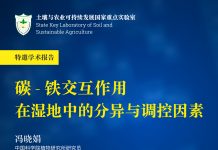1. 报告题目:“The future of Forest Soils”.
报告人:Dr Peter Clinton,Science Leader Forest Systems Scion (New Zealand Forest Research Institute)
2. 报告题目:“Ecological and environmental impacts of long-term application of biosoliods in a pine forest in New Zealand”.
报告人:Dr Jianming Xue,Senior Scientist Forest Systems Scion (New Zealand Forest Research Institute)
报告时间:2016年11月2日上午9:00
报告地点:综合楼209会议室
报告人简介:
Dr Clinton is a forest ecologist whose research interests cover Carbon and nutrient dynamics and plant soil interactions. He has applied the use of stable isotopes to examine such issues as the environmental fate of N fertilisers and competitive interactions between plant species as well as to examine the fundamental nature of soil organic nitrogen. He has integrated various studies on nutrient cycling into understanding of natural stand development sequences and my research highlights the role of deadwood in natural and managed indigenous forests. He has also focused on water use by trees biogeochemistry of natural forests impacts of forest management and impacts of wastewater on microbial communities. His current research concentrates on the effect of forest management practices on soil biophysical properties microbial communities and processes that control soil and forest productivity. He considers himself fortunate to have worked in both indigenous and exotic forests of New Zealand. He gained his PhD from the University of Canterbury and has published over 90 refereed papers. He now leads the Forest System team at Scion and is responsible for the MBIE-levy trust funded research programme – Growing Confidence in Forestry future. This is one of the largest Government funded research programmes in New Zealand.
Dr Xue is the Soil Group leader at the Centre for Integrated Biowaste Research in New Zealand. His research interests are in soil fertility and ecology plant nutrition and forest ecophysiology with expertise in integrated soil fertility and nutrient management genetic and environmental control of resource use efficiency the fate and transport of nutrients and contaminants in ecosystems and reuse and land application of biowastes. His current research includes genotypic variation in nutrient-water use efficiency of tree crop species and its relation to tree growth and wood quality; genetic and physiological controls of nutrient-water use efficiency in tree species; fertiliser responses of tree crop species under different silvicultural regimes and site conditions; plant-microbe interactions in rhizosphere and nutrient bioavailability in relation to tree species and soil types; manipulating plant and soil interactions (e.g. plant-microbe synergies) to improve the beneficial use of biowastes and reduce their environmental and ecological footprints. His current research has strong focus on biowastes reuse for improving soil quality and forest productivity by developing sustainable land application of biosolids and the long-term site productivity and sustainability of plantation forests by selecting appropriate genotypes to match site resources and by developing a site-specific fertiliser decision making support system. He gained his PhD from the University of Canterbury and has published over 70 refereed papers and 50 technical and client reports and edited four books-book chapters







